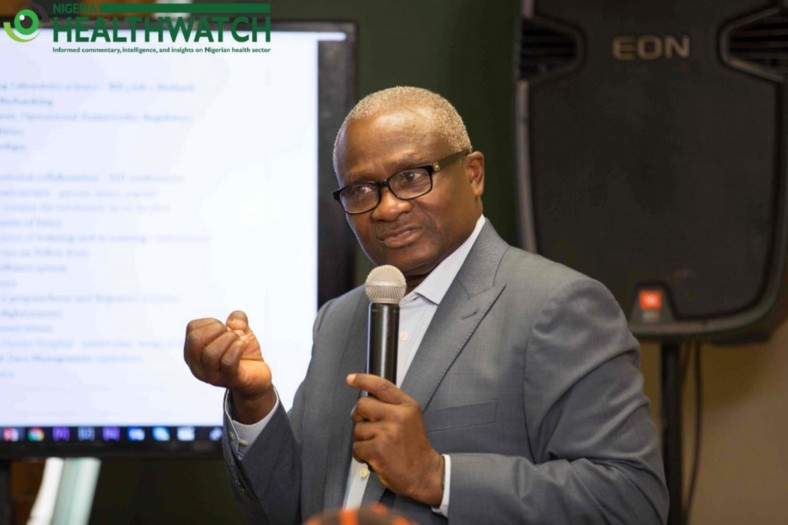The Nigeria Centre for Disease Control and Prevention (NCDC) has issued a nationwide public health alert in response to a recent surge in cases of cholera, yellow fever, and dengue fever linked to ongoing flooding across several states.
The alert, signed by NCDC Director General Dr. Jide Idris, comes as large parts of the country remain at risk of flash floods, a situation that health officials say is contributing to a spike in both waterborne and mosquito-borne diseases.
Recent forecasts from the Nigerian Meteorological Agency (NiMet) have identified at least 21 states including Lagos, Sokoto, Edo, Benue, and Cross River as areas with elevated risk of flooding in July. The agency warned that such conditions may trigger public health emergencies, especially in low-lying and densely populated communities.
According to the NCDC, floodwaters are increasingly contaminating water sources, facilitating the spread of cholera through the bacterium Vibrio cholerae. In addition, stagnant water left behind by floods is creating ideal breeding grounds for mosquitoes that transmit yellow fever and dengue.

“Flooding not only displaces populations and disrupts livelihoods but also significantly raises the risk of infectious disease outbreaks,” the centre noted in its advisory. “Water sources become polluted by runoff from sewage, animal waste, and other contaminants, while standing water supports the proliferation of disease-carrying mosquitoes.”
The agency disclosed that 34 states have already reported suspected cholera cases as of June 29, with Zamfara State alone accounting for 32 percent of total suspected infections. Other states with high case numbers include Bayelsa, Adamawa, Delta, Lagos, and Rivers.
Suspected yellow fever cases have also emerged in various states this year, with laboratory-confirmed cases recorded in Abia, Anambra, Edo, Ekiti, Lagos, and Rivers. While no deaths have been reported from yellow fever so far, the NCDC confirmed that even a single case constitutes an outbreak under national public health policy.
In addition, Edo State has recorded a confirmed outbreak of dengue fever between June 9 and 13, verified through laboratory testing. The centre is currently working in partnership with the Edo State Ministry of Health to manage the outbreak through enhanced surveillance, mosquito control efforts, clinical care, and public risk communication.
Dr. Idris emphasized the importance of community involvement and inter-agency collaboration in controlling the spread of these diseases. “We are working closely with state governments, healthcare workers, and local communities to ensure timely reporting, treatment, and prevention,” he stated.
The NCDC has urged the public to eliminate mosquito breeding sites by clearing stagnant water, covering water storage containers, and using insecticide-treated nets. It also stressed the importance of yellow fever vaccination and recommended the use of personal protective measures such as insect repellents and long-sleeved clothing.
Residents are encouraged to seek immediate medical care if they experience symptoms such as high fever, headache, joint or muscle pain, sore throat, or swollen glands. The agency cautioned against self-medication, noting that symptoms of dengue, yellow fever, and malaria often overlap and require professional diagnosis.
Healthcare professionals have been advised to remain vigilant, report suspected cases promptly, and apply proper infection control protocols, particularly in areas experiencing high mosquito activity. As a legally notifiable disease, dengue must be reported to local and state epidemiologists for prompt public health action.
The alert follows a broader pattern of emerging health threats this year, with Nigeria already facing outbreaks of Mpox and diphtheria. The NCDC assured the public that it is coordinating national efforts to contain all ongoing outbreaks and mitigate the impact on affected communities.




